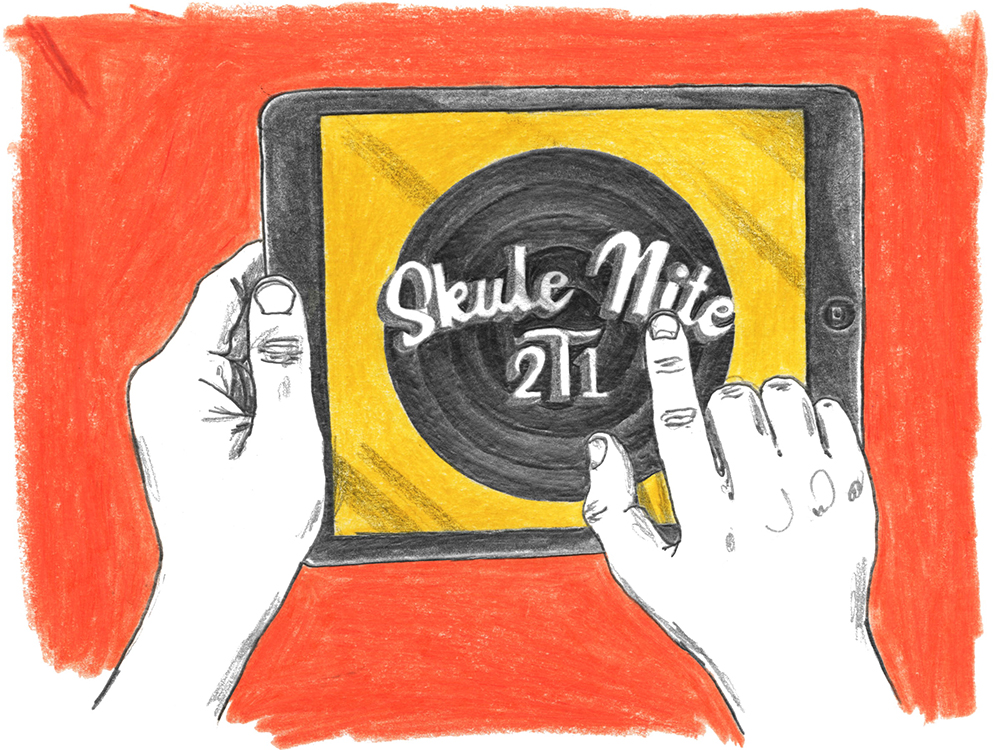Skule Nite was born on an unseasonably mild Wednesday evening in March 1921. It came into the world as “Ngynyrs in SPaSms,” a 13-act variety show written, directed and performed by U of T engineering students, which premiered at Massey Hall to a large crowd and, according to a review in The Varsity student newspaper, thunderous applause.
Just three years out from the First World War, the show centred on the pitfalls – and pratfalls – of army life, featuring such numbers as “Adventures of Chloreen,” the tale of a “wicked king,” “his jolly murderers” and a poison gas attack. The student band Toike Oikestra supplied music for the occasion, instructing audience members to shed their shoes and stockings each time they played, “How Dry I Am,” Irving Berlin’s waggish paean to Prohibition and a popular drinking song of the day.
A roaring success, the revue became an annual event, playing before an even larger crowd of 2,000 in 1922. In 1923, the newly baptized “School Night” made its debut at Hart House Theatre, and with a few exceptions (including a temporary stay at the Royal Ontario Museum during the Second World War), the show has been staged there ever since.
Skule Nite’s popularity has waxed and waned over the years (adherence to standard spelling has mostly waned), but Rob West (BASc 1981), a former cast member, stage manager and director says “the show and its organizers have shown a remarkable ability to roll with the punches, including pivoting to an entirely virtual production this year due to the pandemic.”
Last April, more than 1,000 alumni and friends tuned in to a livestream to watch an Old Hollywood-inspired tribute to the 100th anniversary of the show. And to mark the occasion, West and a group of fellow Skule Nite alumni established two new funds to keep the cherished theatrical tradition alive. “It’s our mission to provide that sense of community and lasting friendships for future generations of engineering students and alumni,” says West. They have raised more than $50,000.






